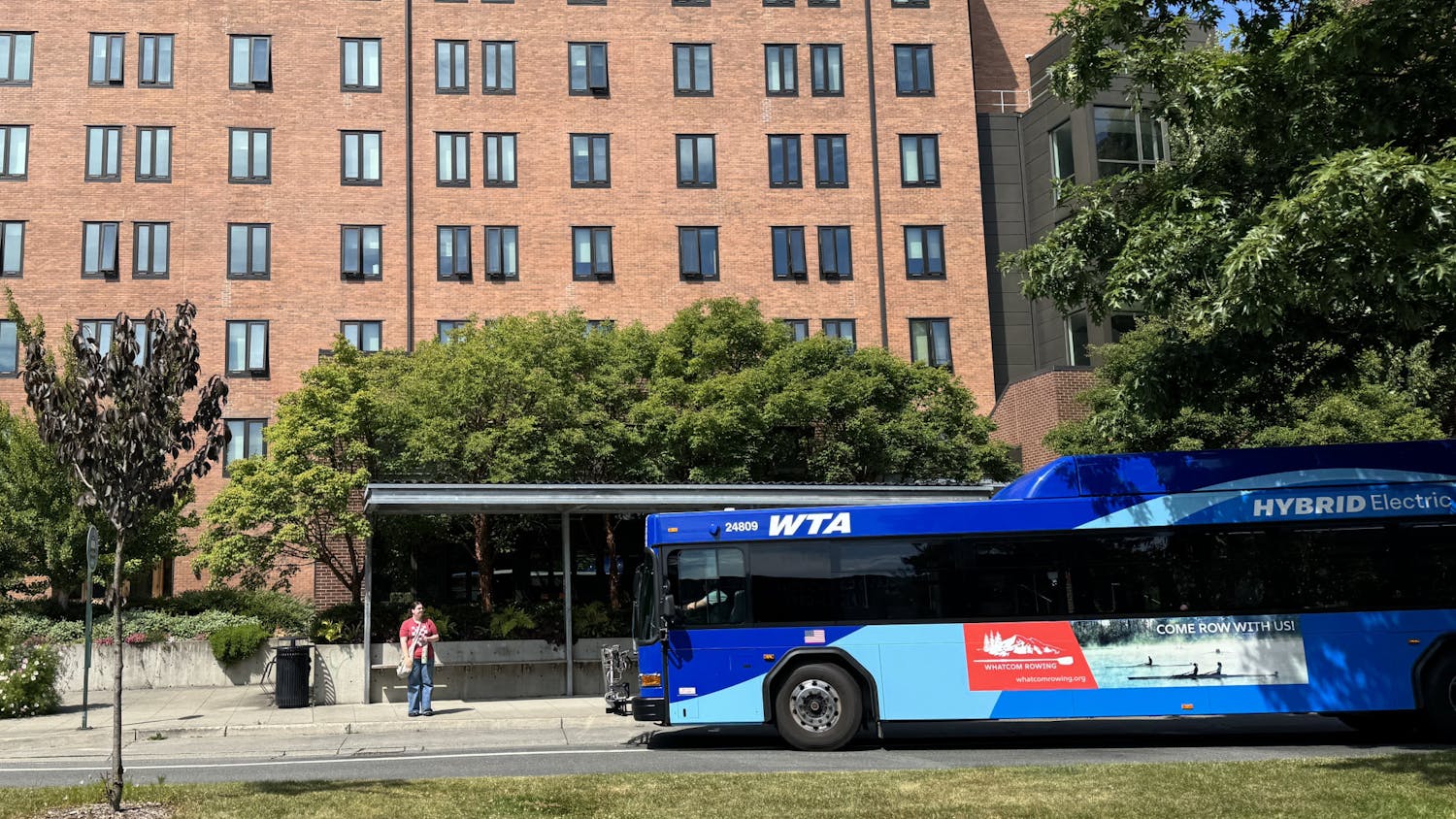Written by: Bram Briskorn and Questen Inghram Over 300 people packed into Arntzen Hall, room 100 as if it were finals week, but it was university officials who were being quizzed. For a little over two hours on the evening of April 17, RAs demanded answers from university administrators on issues including RA working conditions, gender inclusivity in dorms and issues of safety on campus. Wayne Rocque, Associated Students vice president for student life, said the purpose of the forum was to publicly open up the conversation between RAs and the university. “We want to be able to negotiate the demands and the expectations of the university in as much of a public way as we can,” Rocque said. “This is just the beginning of the conversation.” President Sabah Randhawa, Vice President of Enrollment and Student Services Eileen Coughlin, Director of University Residences Leonard Jones and four other officials from University Residences and Human Resources sat on the stage and answered questions. “I would like to personally apologize and to apologize on behalf of the administration for the situation we are in,” Randhawa said. RAs filled the front five rows, many prepared with questions for specific officials. They each had green and red cards to signal agreement or disagreement with what university officials and other RAs had to say. Officials were allowed two minutes to respond to questions, with opportunities for follow-up questions afterwards. “It was really great to have this opportunity to hold administration accountable,” AS President Stephanie Cheng said. RAs originally voiced their concerns in a letter delivered to university administrators on April 7. They also published a website featuring their letter, testimonies and a detailed list of demands. A petition in support of the RAs has over 1,470 signatures as of April 17. RAs had been invited to a meeting by Jones on April 13, but did not attend so that they could meet later, with members of the public present. Some of the issues discussed were: RA Workload and Pay: RAs are paid for 19 hours of work a week, but they say they often work over that threshold, as situations that require their attention can arise even after they’ve already worked for 19 hours. “We can’t totally prevent that,” Coughlin said. “We have been discussing how we can take the RA workload and create a system that has more flexibility in it. The RA role has become an overload, and we hear that.” Coughlin promised the issue will be worked on. Apart from the hours, RAs were also concerned about their pay, saying the stipend for RAs has not changed since 1986, despite the increase in prices for gas, hygiene, food and just about everything else. Another RA said she needed to maintain a second job in order to make ends meet, but she was told during her RA training that working a second job was inappropriate. She kept her second job a secret after that. Jones promised to clear the issue up immediately, saying that RAs are able to work second jobs if it doesn’t impact their performance as an RA. Residence Safety: RAs were concerned about how safe their residences are. They discussed how some dorm rooms require passage through three locked doors to enter, while some open directly to the outside. Jones said he believes the residence halls are safe, but not perfect. He said the university is looking into safety issues, including replacing brass keys with electronic locks. When Emily Gaston, sophomore and Highland Hall RA, asked about safety in light of a break-in that occured in her dorm at Highland Hall, Jones admitted the dorms were not safe for everyone. The effectiveness of the Western Alert system was another concern. RAs said the system failed to provide timely and accurate information. “Some would suggest that Western prioritizes their public image over the accurate reporting of incidences,” Patrick Kissinger, sophomore and RA said. Inclusivity: RAs expressed concerns about how inclusive University Residences was for marginalized students. An RA who said they are undocumented asked what University Residences is doing to protect undocumented students. Randhawa said he has been meeting with undocumented students, and mentioned an idea for a 24-hour hotline they could call for help if they are stopped for questioning. Jones echoed this sentiment. “We will do everything that we can to make sure all of our students, particularly our undocumented students, are safe in their homes,” Jones said. Jones said he had a meeting with the Queer Resource Center as recently as a month ago about improving training on inclusivity within University Residences. Rocque said the meeting only took place after he and members of the Queer Resource Center went to Jones’ office directly. Jones disputed that characterization. What’s Next: “I’m looking forward to working with my RAs and setting up a situation in which they feel valued and they see where their suggestions and improvements are going,” Jones said. Rocque considered the event a successful start. “Because it happened, it’s a success,” Rocque said. “Having this conversation in any form is a success.” However, Rocque feels more must be done. “My biggest concern now is follow-up and the timeline in which these promises will be implemented,” Rocque said. Several RAs had similar feelings about the event. “I think this is the start of an open dialogue,” Gaston said. “I’m disappointed there was a lot of ‘I’ll look into this,’ and other cookie-cutter responses [from university officials]. However, I do think that they are here because they are willing to listen to us, and that’s a great first step.” As far as the next step goes, Gaston said no official meetings have been planned, but she hopes the university will initiate discussions on their own accord. “I would be pleasantly surprised if it came from the university next time,” resident advisor Dakota Nixon said. During an interview after the event, Randhawa encouraged students to bring further concerns to him. “I invite any student to come to me if there are issues,” Randhawa said. “If [students] are getting a message that they can’t communicate with [administrators], that’s totally wrong.” Randhawa was optimistic about moving forward. “I think we can get a lot of these [issues] taken care of before we start fall term, and hopefully before that.” Correction: The original article misattributed a quote to Emily Gaston, when it came from RA Dakota Nixon. The article has been updated to correct this.






